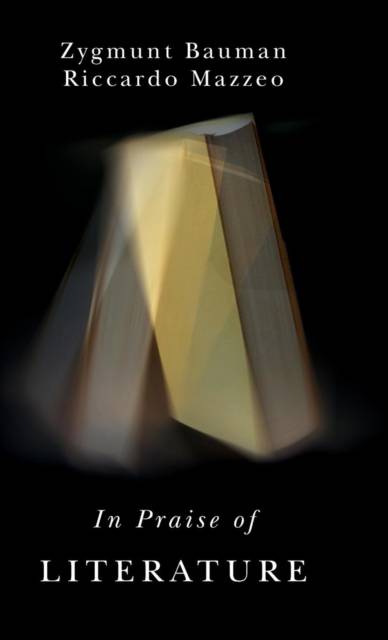
- Retrait gratuit dans votre magasin Club
- 7.000.000 titres dans notre catalogue
- Payer en toute sécurité
- Toujours un magasin près de chez vous
- Retrait gratuit dans votre magasin Club
- 7.000.000 titres dans notre catalogue
- Payer en toute sécurité
- Toujours un magasin près de chez vous
Description
In this new book Zygmunt Bauman and Riccardo Mazzeo examine the contentious issue of the relation between literature (and the arts in general) and sociology (or, more generally, a branch of the humanities claiming scientific status). While many commentators see literature and sociology as radically different vocations, Bauman and Mazzeo argue that they are bound together by a common purpose and a shared subject matter. Despite the many differences in terms of their methods and their ways of presenting their findings, novels and sociological texts are not at cross-purposes. Indeed, it is precisely their differences that make them at once indispensable to each other and mutually complementary.
The writers of novels and of sociological texts may explore their world from different perspectives, seeking and producing different types of 'data', but their products bear the unmistakable marks of their shared origin. They feed each other and depend on each other in terms of their agenda, their discoveries and the contents of their messages. In a world characterized by the continuous search for new sensations and the fetishism of consumption, they bring fundamental existential questions back to the public agenda. Literature and sociology reveal the truth of the human condition only when they stay in one another's company, remaining attentive to each other's findings and engaged in a continuous dialogue. For only together can they rise to the challenging task of untangling and laying bare the complex intertwining of biography and history as well as of individual and society that totality we are constantly shaping while being shaped by it.
The writers of novels and of sociological texts may explore their world from different perspectives, seeking and producing different types of 'data', but their products bear the unmistakable marks of their shared origin. They feed each other and depend on each other in terms of their agenda, their discoveries and the contents of their messages. In a world characterized by the continuous search for new sensations and the fetishism of consumption, they bring fundamental existential questions back to the public agenda. Literature and sociology reveal the truth of the human condition only when they stay in one another's company, remaining attentive to each other's findings and engaged in a continuous dialogue. For only together can they rise to the challenging task of untangling and laying bare the complex intertwining of biography and history as well as of individual and society that totality we are constantly shaping while being shaped by it.
Spécifications
Parties prenantes
- Auteur(s) :
- Editeur:
Contenu
- Nombre de pages :
- 180
- Langue:
- Anglais
Caractéristiques
- EAN:
- 9781509502684
- Date de parution :
- 02-05-16
- Format:
- Livre relié
- Format numérique:
- Genaaid
- Dimensions :
- 142 mm x 218 mm
- Poids :
- 317 g







